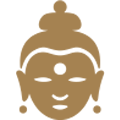FREQUENTLY ASKED QUESTIONS
What is Acupuncture?
Acupuncture is one of the modalities of Oriental medicine. Although what is called acupuncture in the West comprises several different therapies, (such as moxibustion and cupping), mostly it consists of the insertion of fine needles into the body at specific points shown to be effective in the treatment of specific health problems. These points have been mapped by the Chinese over a period of 2,000 years, and there are more than 1,000 known acupoints. In the past three decades, electromagnetic research has confirmed the existence and location of these points.
What is Qi?
A not so simple answer. Ancient texts claim “if you can easily describe Qi, you don’t understand Qi” Though, for simplicity sake, we will now try to do just that. Qi, “ch-ee”, or vital energy, flows along meridians, or channels through the body. There are also forms of Qi that flow through our organs, on our skin, and all around us. For those who have seen Star Wars, the description of The Force comes very close to describing Qi, minus the moving rocks with our minds and force-choking people. We have Qi from the moment of conception to the moment of our last breath. It is believed that Qi, much like energy, can neither be created or destroyed. A more detailed description of Qi would be too lengthy to fit into this site, but you may view one HERE
How does acupuncture work?
Modern Western medicine cannot yet explain how acupuncture works. Though there has been more promising research conducted to help explain the mechanism by which it works. Somewhat ironic that it requires advanced technology to scientifically explain ancient medicine. Traditional Chinese acupuncture is based on ancient Chinese theories of the flow of Qi through distinct channels that cover the body somewhat like the nerves and blood vessels. According to this theory, acupuncture adjusts the flow of Qi in the body, leading it to areas where it is insufficient and draining it from areas where it is stuck and/or superabundant. In this way, acupuncture restores the harmonious balance of the body and its parts. In Chinese, there is a saying, “If there is pain, there is no free flow; if there is free flow, there is no pain.” Acupuncture promotes and reestablishes the free flow of Qi.
Is acupuncture safe?
Yes. Acupuncture is used by millions of Americans every year. Acupuncturists are required to undergo extensive education, including detailed study of human anatomy and training in Clean Needle Technique. I have passed comprehensive national board examinations administered by the National Certification Commission for Acupuncture and Oriental Medicine (NCCAOM) and am licensed by the state. As required by law, I use pre-sterilized, disposable, single-use needles to ensure your complete safety.
Does acupuncture hurt?
Acupuncture needles are typically not much thicker than a hair, and their insertion is practically painless. It is nothing like receiving an ordinary injection. In some cases, you will not even know the needles are in place. In others, there may be some tingling, warmth, heaviness, or a feeling of the Qi moving up and down the channels. Most people find acupuncture extremely relaxing, and many fall asleep during treatment.
How many treatments will I need?
The short answer, it depends. Everyone is different, and as a result we all heal differently. General rule of thumb is an acute condition will not take as long to treat as a chronic condition. For acute conditions you can expect to have 1 to 8 treatments. There are many cases where patients experience relief after only one session, but you will usually begin to feel relief after just the first few. Chronic conditions may take longer to respond, depending on the type, severity, and duration of the condition. Preventative treatments and treatments for general well-being and stress relief may also be scheduled on an as-needed basis.
Are there different styles of acupuncture?
Acupuncture originated in China but has spread to Korea, Japan, Vietnam, Europe, and America. In different countries, different styles have developed based on differing opinions as to theory and technique. Patients should talk to their practitioner about his or her particular style and learn as much as possible about the treatment being proposed.
What should I know about the proposed treatments?
Your practitioner will explain the nature of your problem in Chinese and western medical terms and what treatment he or she is recommending. Your practitioner will discuss with you a treatment plan as well as prognosis. There are instances when a treatment plan will be periodically assessed and revamped if need be.
What criteria should I use in choosing an acupuncture?
Prospective patients should ask about where the practitioner trained and for how long he or she has been in practice, and most importantly, what experience that practitioner has had in treating your specific ailment. Acupuncture is a licensed and regulated health care profession in over 40 states in the U.S. In addition, the National Commission for the Certification of Acupuncture and Oriental Medicine (NCCAOM) certifies both acupuncturists and Chinese herbal practitioners. Acupuncturists who have passed the NCCAOM exam are entitled to ass Dipl. Ac. (Diplomate of Acupuncture) after their name.
Is there anything I need to do before receiving an acupuncture treatment?
The following suggestions will help you get the maximum benefits from your treatment:
• Wear loose clothing
• If you haven’t eaten a meal, eat a snack relatively close to treatment time. A hungry body can alter the pulses, and it’s no fun laying on a table thinking of how hungry you are.
Is there anything I need to do while receiving acupuncture?
Relax. There is no need to be nervous. Ask your practitioner any questions you have along the way so that you can get the most benefit possible from the treatment. Do not change your position or move suddenly. If you are uncomfortable, tell your practitioner.
What can I expect after treatment?
Patients often experience dramatic results in the first treatment. Some patients experience an immediate total or partial relief of their pain or other symptoms. this relief may last or some pain may return. In a few cases, there may be no immediate relief only to notice the pain diminish over the next couple of days. Generally, you should expect to feel better. In aggressive muscular treatments, you may experience a post-workout like soreness that resolves in a day or so, usually leaving you feeling better than when you came in. Always make sure to properly hydrate following treatments. Avoiding strenuous activities, particularly after muscular related treatments, is recommended.
Are all the "herbs" vegetable in origin?
Although called Chinese herbal medicine, TCM practitioners use ingredients from all three kingdoms: vegetable, animal, and mineral. However, the majority are from vegetable sources. Leaves, flowers, twigs, stems, tubers, rhizomes, and barks are some of the many vegetable parts used. If you have any food allergies, sensitivities, or dietary restrictions, please let us know when discussing herbal formulas.
Do all the herbs come from China?
No. 15-20% of the standard Chinese repertoire of the 500 ingredients originated from outside China. The Chinese have adopted and incorporated into their materia medica herbs from all over the world. What makes these “Chinese” herbs is that they are prescribed according to Chinese medical theory and a TCM pattern diagnosis. All herbs used have undergone rigorous testing for heavy metals, contaminants, and other unwanted components. Recently, more and more herbs are being grown organically and sustainably sourced. At A to Zen, we will NEVER use medicinals such as tiger bone or rhino horn, amongst others, and we emphatically denounce the practice of using them.
How are Chinese herbs taken?
The most potent method of taking Chinese herbal medicine is as a decoction. This means that the herbs are boiled for 30 minutes to an hour or more and then strained and drunk 2-3 times per day. Our herbal pharmacy experts at KAMWO also offer to decoct the formula and vacuum seal it ready for your consumption. Formulas can be picked up at the pharmacy, your next session or delivered direct to your home. There are also herbal; pills, tinctures, and powdered extracts for those who do not have the time or taste for traditional decoctions.
Does Chinese herbal medicine have side effects?
No, not if the formula has been correctly chosen and written. Having said that, herbal medicine is internal medicine, and all internal medicine can have the potential of creating unforeseen side effects. Most of the medicinals in the Chinese materia medica have very low toxicity compared to common, over-the-counter and prescription Western drugs. When they are prescribed according to a correct TCM pattern diagnosis, they should have no adverse effects, only beneficial healing results. If a patient experiences any discomfort while taking Chinese herbs, they should tell their practitioner, who will then modify their formula until there are no side effects or adjust the dose to be more tolerable. If unwanted effects persist, as with any medication, patients should discontinue using the formula.
What is Chinese herbal medicine good for?
Chinese herbal medicine treats the full range of human disease. It treats acute diseases, like intestinal flu and the common cold, as well as chronic diseases, such as allergies, gynecological disorders, autoimmune diseases, chronic viral diseases, and degenerative disease due to aging. In particular, Chinese herbal medicine is especially good for promoting the body’s ability to heal and recuperate.
How long does it take to see results with Chinese herbal medicine?
In acute conditions, results can be expected in a matter of minutes. In chronic conditions, some results should be seen within two weeks. Although chronic conditions may require taking Chinese herbal medicine for a long time, nonetheless, signs that the medicine is working should be apparent to the patient and the practitioner almost from the very start.

